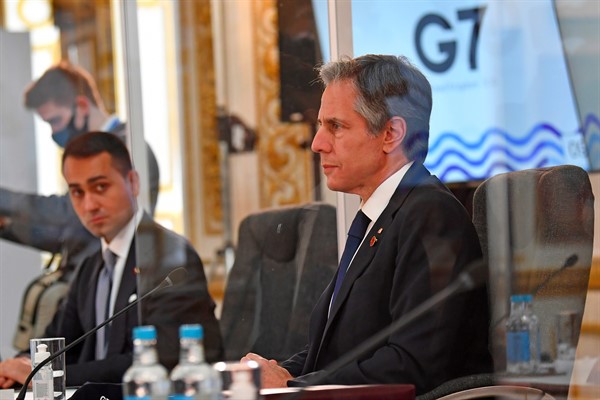The travails of the rules-based international system have set off a vigorous debate within U.S. foreign policy circles over the most promising institutional foundations for world order in the 21st century. The Washington establishment is united in its repudiation of Donald Trump’s “America First” orientation. But it remains divided on what form of U.S. internationalism is best suited to a historical moment defined by two powerful, countervailing trends: the rise of transnational challenges that can only be resolved through collective action and the resurgence of geopolitical competition that hinders international cooperation.
The four distinct models of multilateralism currently vying for primacy can be characterized as the charter, club, concert and coalition conceptions of world order. Each of the “4 Cs” can lay claim to a distinctive virtue: legitimacy, solidarity, capability and flexibility, respectively.
The first, a charter orientation, would give pride of place to the United Nations and other encompassing, treaty-based multilateral bodies that reflect the principle of sovereign equality. For all its faults, the U.N. continues to enjoy unequalled global legitimacy as an international institution by virtue of its universal membership, its legally binding charter and its sole authority—under the auspices of the U.N. Security Council—to authorize the use of force. As then-Deputy Secretary of State Antony Blinken declared in 2016, “there remains no substitute for the work the U.N. does, the legitimacy it brings, the reach it allows.”

